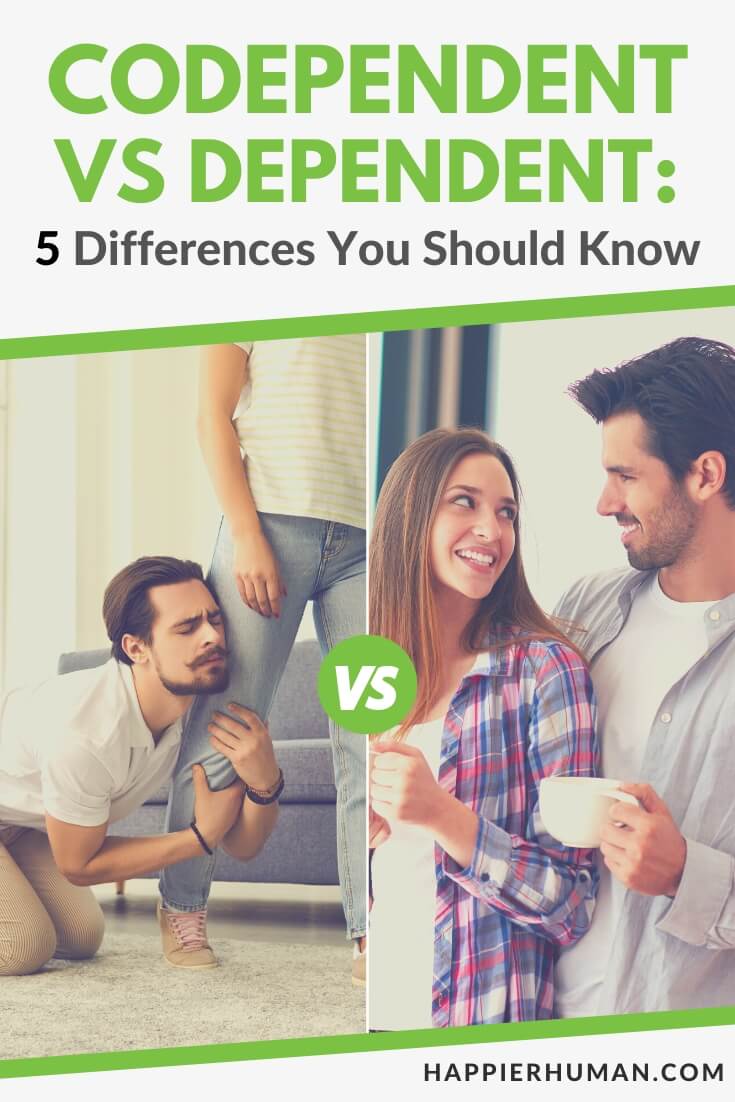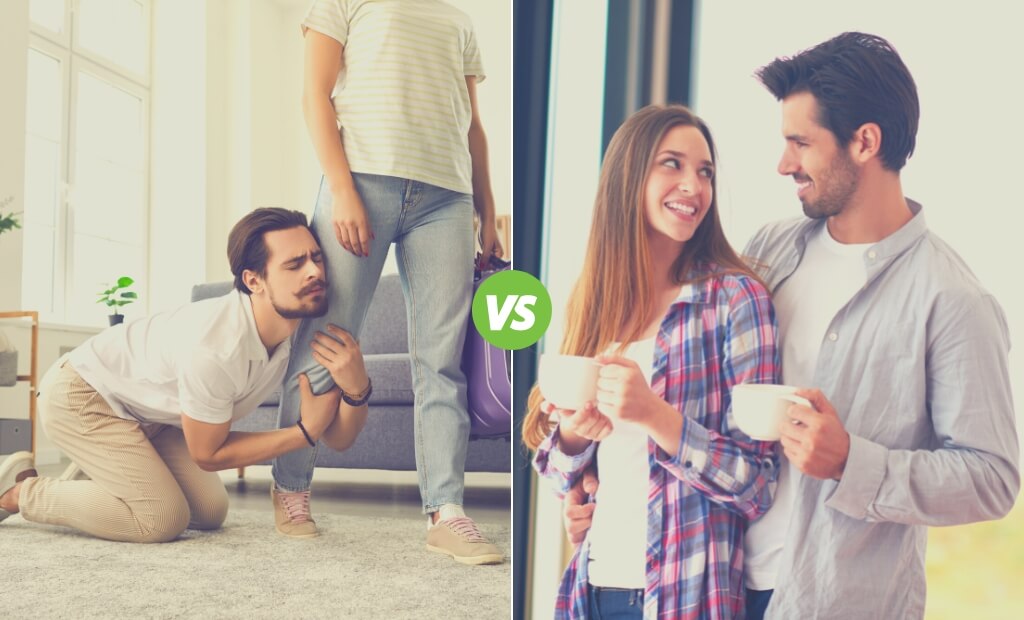We were created to need and depend on others in this wonderful worldwe live in. If you don't believe me, try moving an entire household of furniture into an upstairs apartment all by yourself (I am speaking from experience).
Not only will you see the need to depend upon others. But you will never undertake a project of this magnitude again without soliciting help first.
No matter how strong we are individually, for instance, being able to bench press hundreds of pounds doesn't make one immune to the need for help from others.
Taking a glimpse into nature reveals this amazing reality of the dependence of one upon another. When confronted with danger, sheep in a flock huddle very tightly together, making it difficult for its predictor to pick them apart.
The predictor's goal is to separate one of them from the pack. Making it easy to capture its prey. The strength of the single lamb is to depend upon his flock.
The problem we run into as humans is much more complex. We must consider how much dependency on another is too much. In addition, do our relationships with others demonstrate a healthy portion of give and take?
Finally, is one side clearly taking advantage of the other?
Within relationships, the subject of dependency vs. codependency has been dissected with fine lines. Still, the difference is much broader and more clearly defined. Either way, knowing the difference between the two is essential to forging and maintaining healthy relationships.
What is Codependency?
According to Oxford online dictionary, codependency is an excessive psychological or emotional attachment to an individual or partner. Typically relying on them because of an illness or addiction of some sort.
Moreover, codependency is a learned behavior that can be passed down throughout multiple generations. Therefore, it is a behavioral and emotional condition that can hinder one's ability to have healthy and mutually gratifying relationships.

Many people with codependency issues are said to have relationship addiction. In addition, people with codependency form and maintain one-sided relationships and tend to be abusive and emotionally destructive.
It is a disorder found after years of studying interpersonal relationships within the families of alcoholics. The codependent behavior can be learned and imitated by watching another family member exhibiting this behavior.
Characteristics of codependent people may include:
Who Is Affected Most by Codependency?
Spouses, parents, siblings, friends, and coworkers of a drug addict or alcohol abuser are most affected by codependency. Codependency was once considered a term to describe partners in chemical dependency or in a relationship with an addicted person.
However, according to experts, we all have some form of codependency tendencies in our relationships. But codependents have a burning attraction to struggling people. Those people usually deal with substance abuse, personality disorders, immaturity, and emotional wounds.
Overall, the term has been given a broader description to include any codependent person within a dysfunctional family.
People with codependency don't have much self-esteem and look for external sources to find their worth and feel better about themselves or their situations. Therefore, it is hard for a codependent person to be comfortable “being themselves.”
Furthermore, codependents can often take on the role of a martyr, or on the contrary, they become a champion to someone in need. For instance, a husband may cover for his wife, a father may make excuses for his wild child, or a mother will “pull some strings” to keep her child from the consequences of an illegal act.
What is Dependency?
Dependency, also known as interdependency, is a mutual give and take between individuals. Of course, we all need others and must rely on others at some point. However, healthy dependency is found in relationships when each party gives and receives encouragement, help, support, and much more.
Furthermore, dependency in relationships increases individual self-esteem, confidence, and mastery. It also provokes feelings of love, mutual respect, and emotional safety within the relationship.
When you are in a dependent or interdependent relationship, your partner helps and encourages you to overcome your fears, try new things, and tackle the world's problems head-on.
It also allows each individual to be true to their identity, have separate lives, and find balance within the relationship. As a result, you are not held back but encouraged to be the best version of yourself.
Lastly, when you are in a dependent relationship, you don't have to compromise your identity because your self-esteem is not based on the opinion of others. Therefore, you can be in this type of relationship and maintain individual autonomy.
Codependent VS Dependent: 5 Differences You Should Know
1. On Finding Their Worth
Codependent people find their worth in being needed by another person in a relationship. Usually by an enabler who gets gratification from the other person meeting their every need. However, each party shows mutual love and support in a dependent relationship. They both find the value in being in a relationship.
The codependent person finds their sense of purpose in being needed by another person.
For example, William and Joan have been married for 5 years. Joan does all the cooking for the two of them, even though she works 50-hour weeks. William prefers home-cooked meals over eating out, so even on Joan's longest and most challenging days, he expects her to cook a hot meal.

Over time, Joan has turned down evenings with colleagues, friends' bachelorette parties, and volunteer activities because she feels she “has to be home” to cook dinner for William. Joan has begun to rely on his approval, so she overextends herself to being there to cook for him. And has become willing to sacrifice who she is in the process.
Todd and Samantha have been married for the same time as William and Joan, and both work similar hours. Todd also prefers home-cooked meals to eating out.
However, when he knows that Samantha will be working late or has had a rough day, he will either cook dinner for them or order takeout. It may not be his preference to eat takeout, but he will make things work out of mutual love and respect.
2. On Finding Their Identity
Codependents find their personal identity, values, and interests within their codependent relationship. In a dependent relationship, each side prioritizes their relationship while enjoying outside hobbies, friendships, and interests.
For instance, Pamela was a stay-at-home mom of a beautiful baby boy. There was nothing she wouldn't do for her son. However, over time she became so involved in his life that she had trouble letting go when he became a teenager.
For every activity he wanted to be involved in with other kids, she rivaled it by throwing a similar party or event at their home. Pamela even volunteered at every school trip to keep an eye on him. She went over the top when she chaperoned his senior prom and kept trying to take pictures of him and his friends.
Pamela even broke up a slow dance between her son and his crush to get a photo of her “baby.” Finally, one of the other parents at the prom encouraged Pamela to sit back and allow her son to enjoy “his” dance without interference.
3. On Expressing and Meeting Needs
In a codependent relationship, one person may feel that their needs or desires are unimportant; therefore, they don't express them. However, in an interdependent relationship, both sides can express how they feel and find ways to mutually benefit the relationship.
For instance, one party in a relationship can be verbally abusive. They always make their partners feel their opinions don't matter or their ideas are silly. As a result, the abused person doesn't speak up about their feeling, needs, or opinions. But they always give in to what their partner wants. They become a “YES” person who only wants the outcome, which makes their partner less combative.
Healthy relationships have two parties who discuss ways to improve circumstances, grow, and do life. They do so in a way where both sides feel they have value in the eyes of the other.
4. On Feelings of Safety and Security
Codependent relationships are often built on fear of abandonment, rejection, and harsh criticism. But dependent relationships are safe and secure.
For example, Tonya drove her husband Dan's truck to the grocery store one day. On the way home, she swerved to dodge a cat in the road and grazed the truck's passenger side against someone's brick mailbox. She cried all the way home uncontrollably at the thought of Dan's reaction to the damage to his vehicle.
True to her suspicions, Dan was furious and made her afraid to drive for months.
The same happened later with Tonya's sister Nicole while she was driving her husband's vehicle. She had no trouble telling her husband what happened because she was secure in her relationship. After telling him, he was happy that she was ok, even saying, “cars are replaceable; you aren't.”
5. On Responsibility and Self-Sufficiency
Within codependent relationships, enabling is camouflaged as help. It stunts personal development and creates dependency. However, healthy dependent relationships encourage learning, growth, and self-sufficiency.
For instance, Ron’s 31-year-old son Hunter has had several brushes with the law since he was 18. Every time he gets arrested, Ron bails him out of it because he is the captain of the local police force. As a courtesy to him, many of Hunter's arrests failed to make it to the judge in court.
Those cases of Hunter's that brought him before the judge were dismissed as a favor to Ron. Ron did not realize he enabled Hunter to keep committing crimes rather than helping him.
Ralph, a police chief, always taught his daughter Bailey that actions had consequences. He also taught her that she could learn from her mistakes and make better choices. As a result, they had a healthy dependent relationship.

After Bailey got a driver’s license and her first car, she was pulled over many times for speeding. Usually, she could get out speeding tickets by informing the officers that her dad was Ralph, the police chief.
But, one day, Ralph found out about the favor she had been shown and told Bailey that her speeding would no longer be tolerated. Furthermore, he admonished his officers not to show her any leniency. Later that week, she received two speeding tickets in back-to-back days.
Ralph made Bailey get a job to pay for the tickets and half of her car insurance if she wanted to continue driving her car. So, she began working at a local restaurant waiting on tables.
At first, Bailey wasn't fond of the punishment but later thanked her father. Because of their relationship, she was able to learn and grow. Through the circumstances, Bailey became independent and enjoyed making money and paying her own way.
She also found a love for food and cooking. This leads her to become a chef and restaurateur later in life.
Final Thoughts on Codependent VS Dependent: 5 Differences You Should Know
Some of us have seen nothing but unhealthy relationships modeled before us, so we wouldn't even know what a healthy dependent relationship looked like.
For example, one or both of our parents may have been abusers of alcohol or addicted to a drug. Moreover, we may have seen codependent relationships within our families' structures and didn't know any better.
So, lacking self-awareness, we entered our first, second, or even third marriages not understanding what we were doing wrong. As a result, many of us either mimicked what we saw and found it didn't work, or we decided we didn't want to live life the way we saw others live.
Thus, we went in the opposite direction. Still, we should all desire to pursue emotional independence and healthy dependent relationships. That means we must be prepared to roll up our sleeves and work.
We must also be prepared for give and take and fight to make the relationship mutually beneficial. That creates a breeding ground for love and a safe place for it to grow.


